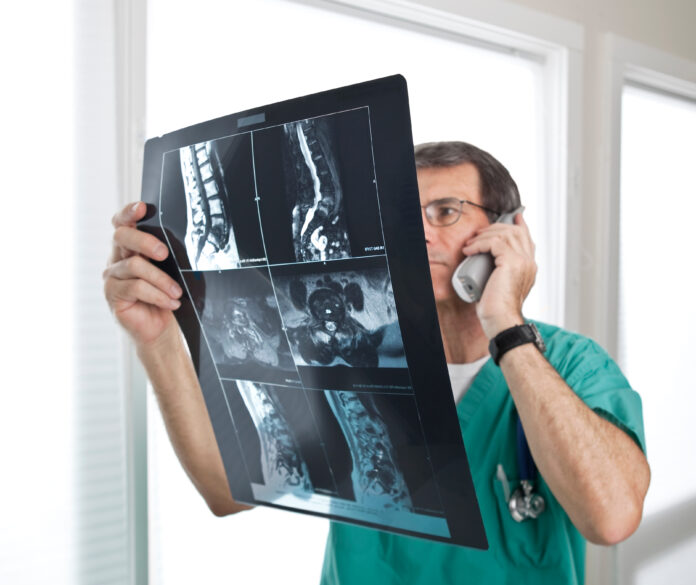Neurosurgeons are often involved in the critical care and surgical phases of acute spinal cord injury (SCI). For decades, they have worked to treat SCI more effectively with neuroprotective or reconstructive biological strategies. These approaches have ranged from early spinal cord decompression and blood pressure support to hypothermia and neuroprotective drugs such as riluzole, transplantation of reparative cells, brain-machine interfaces, deep brain, and epidural stimulation devices to increase functional recovery. These research activities require funding, organized research structures, and specialized skill sets. Fundamentally, they require cross-trained clinician-scientists grounded in both clinical excellence and research competencies. The scientific training period on the career path can offer unique opportunities to train internationally, creating life-long relationships. Of primary importance are mentors demonstrating the feasibility of the career path.
I was initially trained in Canada, and while in medical school, Rick Hansen wheeled across the world in his wheelchair, leading to the creation of the Rick Hansen Foundation. As a resident in Vancouver, British Columbia, I was mentored by John Steeves, Ph.D., who created the International Collaboration on Repair Discoveries. My Vancouver neurosurgical mentors, Felix Durity, MD and David Fairholm, MD, graciously made it possible for me to undertake a PhD at the Miami Project to Cure Paralysis beginning in my PGY5 year. The Miami Project had tremendous international connections. Mentors from my PhD training, including Richard Bunge, MD, in Miami, Martin Schwab, PhD, in Zurich, and Lars Olsen, PhD, at the Karolinska Institute, fostered translational research with clinicians and neurosurgeons like Charles Tator, MD, PhD, in Toronto successfully functioned in both the experimental science and clinical worlds.
The most urgent calls for research progress come from people or families affected by SCI. While federal funding sources may provide the largest grants, the most passionate drive comes from organizations built by individuals and families that have experienced SCI personally. Although these organizations may not offer extensive funding, they have a major role in setting priorities and grounding the research in what is most important to people living with SCI. Further, they can foster multidisciplinary cultures, with each SCI organization having its own “personality” and priorities.
In my career, working with research advocacy organizations has been enriching and illuminating. Due to research on the regenerative capabilities of Schwann cells, I became involved with the UK-based International Spinal Research Trust (ISRT) in 2001. Initially, I was a funded investigator and then became a member of the ISRT scientific committee and then chair. Another organization that I have worked with closely is the Christopher Reeve Paralysis Foundation. This affiliation grew from my involvement with the North American Clinical Trials Network and my mentoring by Robert Grossman, MD, who established the network.
The international collaborative nature of the SCI field has always appealed to me, and my ISRT connection led to teaching in Neurotrauma Schools together with the Wings for Life Foundation. Other senior colleagues, Xiao-Ming Xu, PhD, and Wise Young, MD, PhD, involved me in SCI efforts in China and Hong Kong. Effective repair and recovery research after SCI is multidisciplinary and necessarily embedded with rehabilitation. The American Spinal Injury Association has especially fostered interactions between neurosurgeons and rehabilitationists. International collaborative SCI research networks such as the North American Clinical Trials Network (NACTN) and the European Multicenter Study about Spinal Cord Injury Study (EMSCI) are essential to gather meaningful real-world data, supporting multi-institutional clinical trials, implementing changes in care and practice, and facilitate communication1, 2. Networks break down barriers and draw in trainees’ enthusiasm at critical stages of their careers.
Many advocates wish there were an overarching international roadmap for SCI research to coordinate efforts and avoid duplication. To some extent, we witnessed that collaborative potential with the COVID pandemic. However, the need to advance SCI care varies significantly across geographical regions, and in some countries, the most basic life-saving care is unavailable. Many SCI advocates are frustrated with the pace of SCI research. It is difficult to convey the experimental nature of interventions and scientific equipoise when research is prematurely treated as treatment due to sincere hope in the outcome.
At the global level, there is a need to broaden our networks through education and clinical pathway implementation. Many aspects of treatment we regard as care standards are difficult to implement in less-resourced settings. In some countries, SCI is often still fatal. Personal experience in such settings creates awareness that the advance of SCI care is not only pushing forward into more complexity but pulling others up to implement the established fundamentals of SCI practice through education and improved infrastructure. Here, an important mentor, Barth Green, MD, has substantially impacted Haiti’s health and SCI care.
In summary, research advocacy arises from impactful experience; it can garner essential resources and structure. Although advocacy may create tension, it can be a catalyst to probe apparent boundaries and limitations for the next point of breakthrough.
- Tator, C., Guest, J., Neal, C.J., et al. (2022). History and Accomplishments of the North American Clinical Trials Network (NACTN) for Spinal Cord Injury, 2004 to 2022. J Neurotrauma. 36515162.
- Kelly-Hedrick, M., Abd-El-Barr, M., Aarabi, B., et al. (2022). The Importance of Prospective Registries and Clinical Research Networks in the Evolution of Spinal Cord Injury Care. J Neurotrauma. 36576020.







